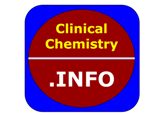Clin Chem Lab Med. 2025 Oct 14. doi: 10.1515/cclm-2025-1178. Online ahead of print.
ABSTRACT
OBJECTIVES: The aim of this study is to develop a core competency-based EPAs framework for undergraduate interns in the clinical laboratory.
METHODS: The EPAs framework was developed in three stages: formation of a research team, drafting of an initial EPAs framework, and reviewing EPAs framework. This study employed a literature review and a modified Delphi method to construct EPAs. Furthermore, a preliminary validation of established EPAs framework was conducted among 23 interns and their supervisors.
RESULTS: A framework encompassing 10 EPAs was developed, including: occupational exposure and protection, collection of various types of clinical specimens, reception and preprocessing of various types of clinical specimens, basic manual operations for laboratory tests, basic instrument operations for laboratory tests, judgment on the releasability of test reports, notification of critical values, laboratory quality control, interpretation of test reports, communication with clinicians and patients. Experts in the two rounds of Delphi showed high enthusiasm, authority, coordination, and concentration. Scores for each EPA indicator’s importance, familiarity, observability, universality, and accuracy were all exceeded 3.5 points, with a coefficient of variation below 0.25. Furthermore, expected confidence levels for each indicator were established at four key internship milestones. In pilot study, significant discrepancy were found between self- and director-assessments across most EPAs (p<0.05), with interns consistently rating themselves higher, particularly in complex tasks.
CONCLUSIONS: With its robust validity and systematic structure, this EPAs framework provides a scalable model for assessing clinical laboratory interns. It effectively enhances internship competency and promotes global standardization in clinical laboratory education.
PMID:41084866 | DOI:10.1515/cclm-2025-1178
